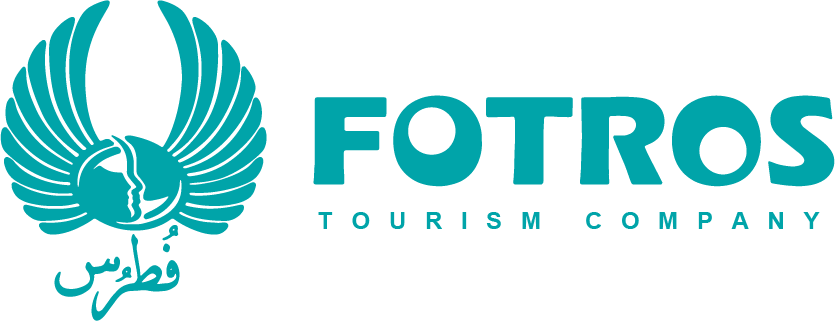
Medical Surgeries
Corneal Transplant


A corneal transplant, also known as a corneal graft or keratoplasty, is a surgical procedure in which a damaged or diseased cornea is replaced with healthy corneal tissue from a donor. The cornea is the clear, dome-shaped front surface of the eye that covers the iris and the pupil. It plays a crucial role in focusing light onto the retina, allowing us to see clearly.
Corneal transplants are typically performed when:
the cornea becomes cloudy
distorted
scarred, or diseased due to various conditions, such as:
Keratoconus: A condition where the cornea becomes thin and bulges outward, causing vision distortion
Fuchs dystrophy: A genetic disorder that leads to a buildup of fluid in the cornea.
Corneal injury or scarring: Trauma, infection, or previous eye surgeries can damage the cornea.
Corneal degeneration: Conditions like keratitis or corneal ulcers can lead to corneal damage.
Other corneal diseases: Various diseases can affect the cornea and necessitate a transplant.
During a corneal transplant, a skilled ophthalmologist or eye surgeon removes the central portion of the damaged cornea and replaces it with healthy corneal tissue from a deceased donor.
There are different types of corneal transplant procedures, including:
Penetrating Keratoplasty (PK): In PK, the entire central cornea is replaced with a donor cornea.
Lamellar Keratoplasty: This technique involves replacing only the affected layers of the cornea, either the anterior layers (anterior lamellar keratoplasty) or the posterior layers (posterior lamellar keratoplasty).


Endothelial Keratoplasty: This type of transplant targets the innermost layer of the cornea (endothelium) and is used in cases like Fuchs dystrophy. Two common procedures in this category are Descemet's stripping endothelial keratoplasty (DSEK) and Descemet's membrane endothelial keratoplasty (DMEK).


Success Rate
Corneal transplants have a high success rate and can significantly improve vision in individuals with corneal disorders. The success of the procedure depends on various factors, including the patient's overall eye health, the specific condition being treated, and the surgical technique used. After the transplant, patients typically need to use eye medications and follow up with their ophthalmologist for post-operative care and monitoring.
Duration surgery
The duration of a corneal transplant surgery, also known as a keratoplasty, can vary depending on the specific technique being used and the complexity of the procedure. In general, the surgery can take approximately 1 to 2 hours to complete. However, it's important to note that this is just the surgical time, and you should expect to spend additional time at the surgical center or hospital for pre-operative preparations and post-operative recovery and observation.
During the surgery, the ophthalmologist removes the damaged or diseased corneal tissue and replaces it with a healthy donor cornea. The technique used (e.g., full-thickness transplant or partial-thickness transplant) and the underlying eye condition will influence the exact duration of the procedure.
Your ophthalmologist will provide you with more specific information about the expected duration of the surgery and what to expect in terms of pre-operative and post-operative care based on your case. It's important to follow their guidance and be prepared for a comprehensive recovery process after the surgery.


Corneal transplant, also known as keratoplasty, is a surgical procedure that involves replacing a damaged or diseased cornea with a healthy donor cornea. Proper care before and after the surgery is crucial for a successful outcome. Here's an overview of the before and after care for corneal transplants


Before the Corneal Transplant:
Pre-operative evaluation:
• Your eye surgeon will conduct a thorough examination of your eye to determine the suitability for a corneal transplant.
• Discuss your medical history and any medications you are currently taking.
• You may be required to stop taking certain medications, like aspirin or blood thinners, in the days leading up to the surgery
Fasting:
• You may be asked to fast for a specific period before the surgery, typically overnight, to avoid complications during the procedure.
Arrangements:
• Arrange for transportation to and from the surgical center as you may not be able to drive immediately after the surgery.
Organ donor:
• The donor cornea is usually obtained from eye banks and is rigorously tested for safety and quality.
• The donor tissue is matched to your eye based on factors like size and blood type.
After the Corneal Transplant:
Post-operative recovery:
• You will need someone to accompany you to the surgery center and drive you back home.
• Your eye may be patched for a day or two after surgery to protect it and minimize discomfort.
Medications:
• You will be prescribed eye drops and other medications to prevent infection, reduce inflammation, and promote healing.
• Follow your doctor's instructions for using these medications diligently.
Follow-up appointments:
• Regular follow-up appointments are essential to monitor the progress of your recovery.
• Your surgeon will remove stitches at various intervals, which can vary from several weeks to months.
Nutrition and hydration:
• Eat a balanced diet and stay well-hydrated to support the healing process.


Monitor for complications:
• Watch for signs of infection, rejection (redness, pain, blurred vision), or any unusual symptoms, and report them to your surgeon promptly.
Be patient:
• Visual recovery after a corneal transplant can be gradual, taking several months to a year or more. Be patient and follow your doctor's guidance.


Why Iran:
Iran is considered a suitable location for corneal transplants for several reasons:
Established Infrastructure: Iran has well-established healthcare facilities and a strong infrastructure for organ transplantation, including corneal transplants. Many hospitals in major cities have dedicated eye departments and experienced ophthalmologists who can perform corneal transplantation surgeries.
Skilled Ophthalmologists: Iran has a reputation for having highly skilled and qualified ophthalmologists who are trained to perform corneal transplants.
Many of these surgeons are experienced in various techniques and have access to the latest advancements in the field.
Availability of Corneal Tissue: Iran has a relatively high rate of organ donation, including corneal donation. This availability of corneal tissue is crucial for performing successful transplants. The Iranian Eye Bank Association is responsible for coordinating the collection, distribution, and transplantation of corneas.
Cost-Effective Care: Medical care in Iran, including corneal transplant surgeries, tends to be more affordable compared to many Western countries. This makes it an attractive option for patients seeking cost-effective solutions for vision-related issues.
High Success Rates: Iranian eye surgeons have achieved high success rates in corneal transplants, with outcomes comparable to international standards. This success is due to the expertise of the medical professionals and the availability of high-quality equipment and facilities.
Research and Innovation: Iran has a strong focus on medical research and innovation in the field of ophthalmology. This commitment to advancing knowledge and techniques in eye care contributes to the overall quality of care provided in the country.
Medical Tourism: Iran has been a popular destination for medical tourism, including ophthalmic procedures like corneal transplants. Patients from neighboring countries often travel to Iran for quality eye care at a fraction of the cost they might incur in their home countries.
Our services include:
![]() our online services include: quotes and consultation
our online services include: quotes and consultation
![]() Planning the highest word-level medical trips and quality hospitals and medical centers according to the patient's request and budget.
Planning the highest word-level medical trips and quality hospitals and medical centers according to the patient's request and budget.
![]() Appointing treatments by the most skilled and experienced doctors.
Appointing treatments by the most skilled and experienced doctors.
![]() Airport pick-up/drop off, check-ups, accompanying translator, book hotel (for patients and their families)
Airport pick-up/drop off, check-ups, accompanying translator, book hotel (for patients and their families)
![]() Pre-hospitalization / post-hospitalization care services
Pre-hospitalization / post-hospitalization care services




All-Inclusive Medical Travel Packages
based on your budget, our team will assist you in choosing the best hotels, doctors, and medical centers. Our packages include:
 Airport Pickup Services
Airport Pickup Services Airport Dropoff services
Airport Dropoff services Hotel
Hotel Ticket
Ticket visa
visa translator
translator Transfer
Transfer SIM Card
SIM Card Sightseeing
Sightseeing
 why Iran
why Iran
Patients may choose to have abdominoplasty (commonly known as a tummy tuck) in Iran for a variety of reasons
Cost, Quality of Care, Privacy and Discretion, Combined Tourism, no Waiting Times
![]()
Fotros is an Iranian health tourism company with a professional team consisting of a support team and word-level doctors in medical and cosmetic surgeries like Neurosurgery, Rhinoplasty, Breast cosmetic surgeries, Liposuction, tummy tuck, etc.










 why Iran
why Iran